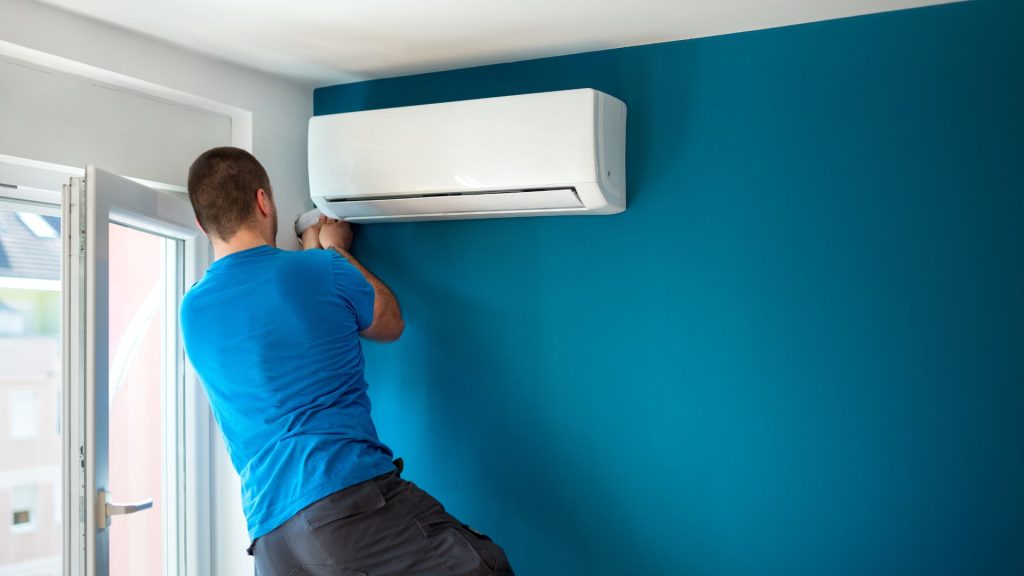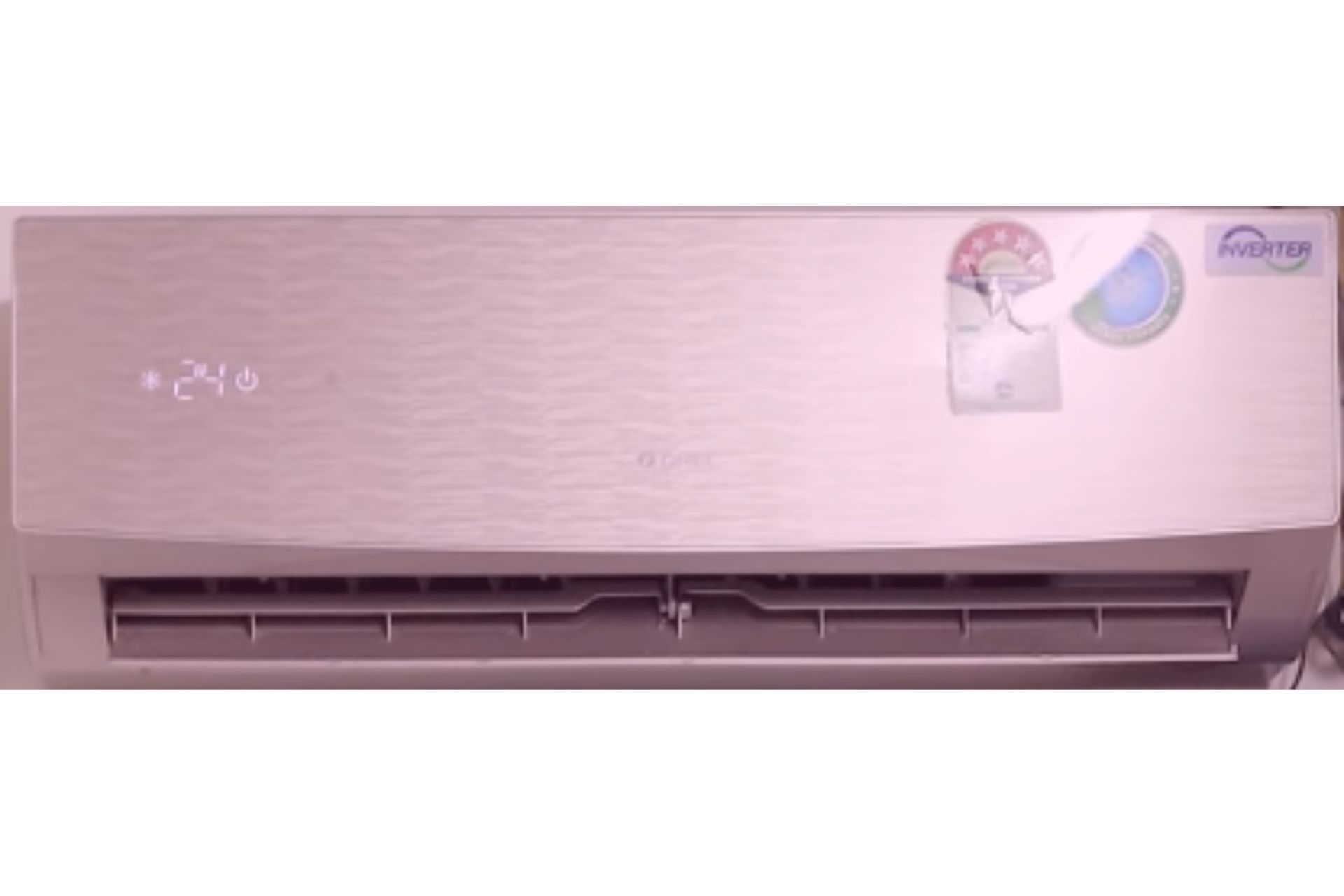Experts call this behavior short cycling, and it’s a bad thing. Why? Because the air conditioner turns on and off over and over again. As a result, the appliance wastes energy. ACs use more power while starting.
An ac unit uses 500W during normal operations and 1,500W when it first starts.
Therefore, a Gree AC that starts and stops repeatedly will cost you more money than one that starts and stays on. More importantly, your home’s conditions will deteriorate because the AC keeps shutting off before it can raise or lower the temperature to your satisfaction.
Additionally, Merrell and Associates Inc. blames short cycling for reducing an AC’s lifespan by increasing the rate at which components like the capacitor and motor wear out. Therefore, you shouldn’t ignore an appliance that keeps shutting off. The following factors may explain this phenomenon:
1). Timer Settings
Does the Gree AC shut off immediately, erratically, or after a specific period? Does it follow the same pattern on each occasion? If so, you probably programmed the air conditioner to only run for a particular period before turning off.
Check the manual to get a better understanding of the timer settings. Many newcomers make this mistake while fumbling with controls and settings they don’t understand.
2). Problem In Thermostat
Consumers are quick to blame a Gree AC that keeps turning off on a faulty thermostat. They are not wrong. A thermostat can shut the AC down randomly because of an internal defect, loose connections, or damaged wiring.
However, you should consider the thermostat’s location. The thermostat tracks changes in the ambient temperature. Placing the device within the vicinity of a heat source, such as a window, may trick the thermostat into thinking that it has attained the correct ambient temperature.
Once it reaches this erroneous conclusion, the thermostat will turn the Gree AC off mere minutes after you turn it on.
3). Overheating
An air conditioner can overheat because of a dirty filter. The filter restricts the airflow, which can attract various consequences. Many laypeople look for signs of overheating and a drop in efficiency.
They don’t expect the evaporator coils to freeze, which is why they forget to inspect these components. You should also look for dirt and debris on the compressor unit.
4). Low/Leaking Refrigerant
A refrigerant deficiency lowers the pressure, freezing the evaporator coils and turning the Gree air conditioner on and off. This is where things get interesting. Doctor HVAC has highlighted the fact that refrigerant is not a fuel. The air conditioner doesn’t burn or consume refrigerant in any way.
Does that mean it expires? No. Refrigerant can last the AC unit’s lifespan. So why does it deplete? Because air conditioners wear out over time. The joints and connections fail, allowing the refrigerant to leak.
In other words, your biggest problem is the leaking refrigerant, not the low refrigerant levels. Air conditioners with low refrigerant will generate hot air even when you program them to lower the temperature.
You will also observe condensation on the unit, ice on the coils, hissing from the refrigerant lines, and a drop in efficiency. If you’ve ruled out a refrigerant leak, keep in mind that a compressor pushes the refrigerant through the unit. Therefore, an air conditioner can short cycle because of a damaged compressor.
5). Gree AC Is Oversized For Your Home
Air conditioners don’t run indefinitely. They will shut down after attaining the temperatures you programmed. If your Gree AC is oversized for your home, it may raise or lower the temperatures to your satisfaction within minutes, shutting down soon after.
While this sounds like a good thing, it will increase your operational costs. Again, an AC that turns on and off repeatedly uses more power than one that stays on consistently. Don’t be surprised if your AC breaks down faster than you anticipated.
6). Electrical Instabilities
An unreliable power supply will disrupt the air conditioner’s operations. Don’t limit your search to the breaker and wiring. While they matter, the circuit boards and thermostats are just as important, not to mention potentially defective capacitors.
How To Fix Gree AC That Keeps Turning Off?

- Adjust the settings. Sometimes changing the temperature is enough to fix the issue. At the very least, it will allow the unit to run for longer, especially if you disable or re-program the timer settings.
- Change the thermostat’s location. Keep it away from areas that expose the device to extreme heat or cold. Find a neutral zone that allows the thermostat to track the temperature without external interference accurately.
- Replace defective circuit boards.
- Identify loose connections and tighten them.
- Find broken or worn-out lines and replace them.
- Replace a broken or worn-out capacitor.
- Check the drain for clogging. Laypeople ignore the drain line. They don’t realize that a float switch can deactivate the AC if the water accumulates in the drain line.
- Find and clean dirty air filters. Replace them every 90 days.
- You can replenish the refrigerant, but it won’t help you if the AC has a leak. In severe cases, you will hear hissing and bubbling from the refrigerant line. This is good because it allows you to identify the leak with relative ease. The United States Environmental Protection Agency has classified refrigerants as toxic agents. It associates the substance with asphyxiation and fire hazards. Therefore, you should leave refrigerant leaks to a professional.
- If you have an oversized unit, consult an HVAC professional. They will measure your home’s dimensions before identifying a suitably sized Gree AC to replace the oversized unit.
- Defrost the coils. Identify the element responsible for the ice build-up and fix it.
- The compressor is vital to an AC unit’s cooling process. If it develops a fault, replace it. Otherwise, the air conditioner will overheat or increase your utility bill by working harder than usual to control your home’s temperature.

